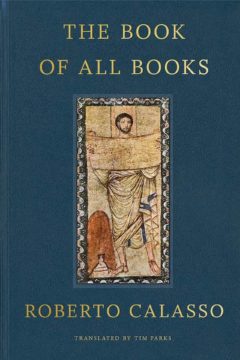Dan Turello at the LARB:
 Instead of following the well-worn path of thinking about Abraham as the father of a nation, we are presented with a traveling herder about whom we know nothing other than that he had a beautiful wife. Calasso points out that among “the many causes of bafflement scholars come up against in the Bible one of the most glaring is the fact that there are three occasions in Genesis when a man tries to pass off his wife as his sister.” Recalling these episodes alongside the accounts of fathers willing to send out their daughters to be raped by mobs casts these men in rather unflattering light. But more importantly, it raises the question of how the books of the Bible were assembled, how and why stories were included or deleted. The “main author of the Bible,” writes Calasso, “could be thought of as the unknown Final Redactor, who thus becomes responsible for all the innumerable occasions of perplexity that the Bible is bound to provoke in anyone.” This seems to be the interpretative crux. The Bible continues to inspire our cultural and religious imaginary. The question is not whether to read it — it is how we read it.
Instead of following the well-worn path of thinking about Abraham as the father of a nation, we are presented with a traveling herder about whom we know nothing other than that he had a beautiful wife. Calasso points out that among “the many causes of bafflement scholars come up against in the Bible one of the most glaring is the fact that there are three occasions in Genesis when a man tries to pass off his wife as his sister.” Recalling these episodes alongside the accounts of fathers willing to send out their daughters to be raped by mobs casts these men in rather unflattering light. But more importantly, it raises the question of how the books of the Bible were assembled, how and why stories were included or deleted. The “main author of the Bible,” writes Calasso, “could be thought of as the unknown Final Redactor, who thus becomes responsible for all the innumerable occasions of perplexity that the Bible is bound to provoke in anyone.” This seems to be the interpretative crux. The Bible continues to inspire our cultural and religious imaginary. The question is not whether to read it — it is how we read it.
more here.
